
 Goals of this Module
Goals of this Module
- We can all help each other at the human level, feeling confident to ask your colleagues: "Are you ok?"
- Using ALL ACT is a structured way to open a conversation and support your colleagues;
- Be aware of the help available to support your colleagues and make sure you take care of yourself too.
In this module we will give you a structured way in which to start the conversation with a colleague, friend or family member who may be struggling. First let’s watch a video.
Watch the video: Gary’s story:
Q: Discuss in your group:
What did you see?
What difference did it make to Gary?
We are all human and we all struggle at times. Despite this, we can find it hard to share our feelings and ask for help.
We do better when we support each other. You don’t need to be a doctor or counsellor to reach out and help another person. You just need to be there, to listen, to support them and to ask "Are you ok?"
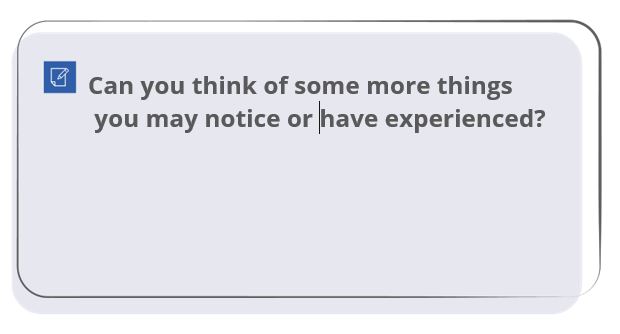
- Quieter, and bad tempered
- Withdrawn, staying in our cabin
- Not coming to dinner
- Distracted
- Look tired or unshaven
It is common to recognise the difference, but we can then struggle to know what to do to approach them.
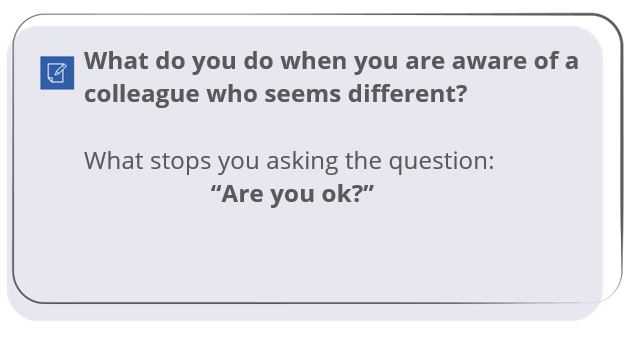
- I don’t know what to ask.
- I don’t know how to help.
- I’m worried I’ll make things worse.
-
I’m not a counsellor.
These feelings are very normal and so it is beneficial to have a structure and a plan to work to.

Introducing All ACT
This is a simple way of remembering the steps we can take to support our team members.
Following these actions can help us to have open conversations with someone we are concerned about and who may be struggling.
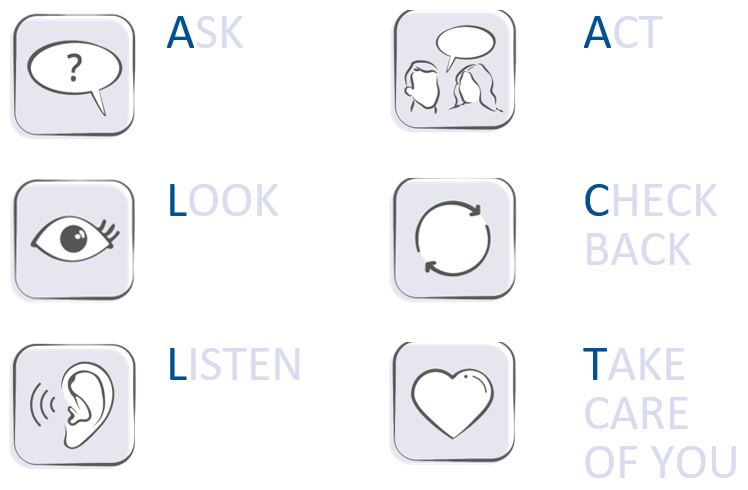
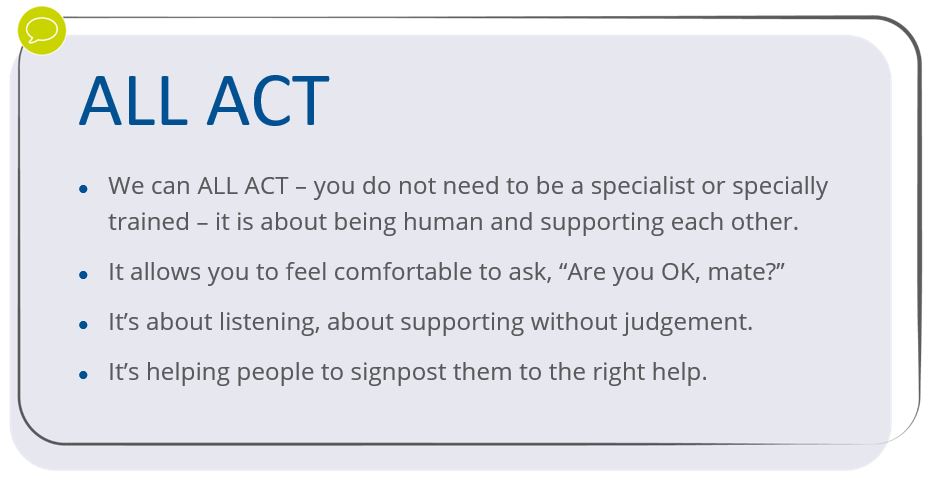
What you should NOT do:
- Diagnose mental health issues – just listen and suggest support.
- Act as a counsellor – this is not your role; you are not trained for it and you should not try to do it. Instead ask for professional help.
- Think you have to do it all yourself – there is a lot of help around you. If you are worried or feel uncomfortable, ask others to help.
Making a Start
If you recognise that your colleague is not themselves, it’s important to prepare in advance. This will give you the confidence to open the conversation and suggest support.
Prior Preparation Prevents Poor Performance.
Read through the following sections before starting.
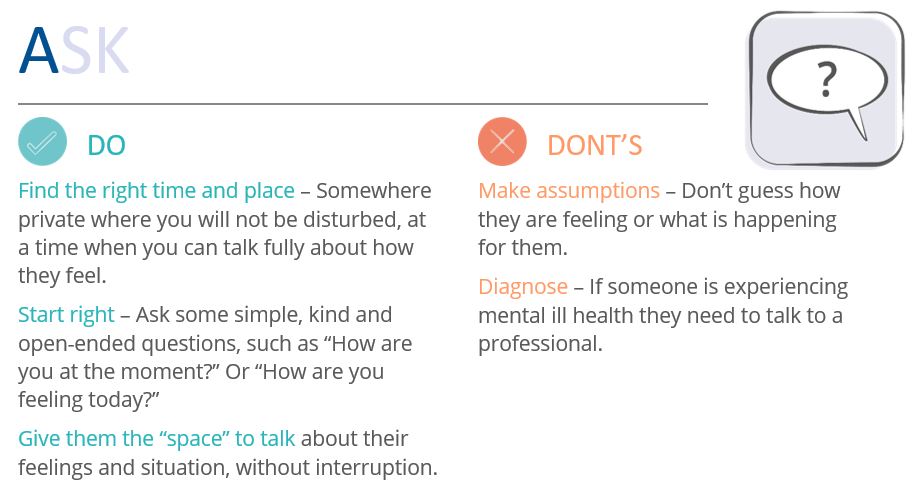
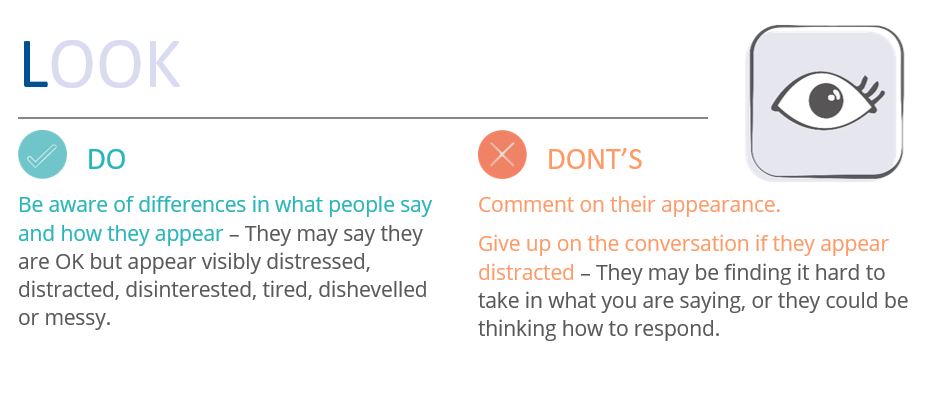
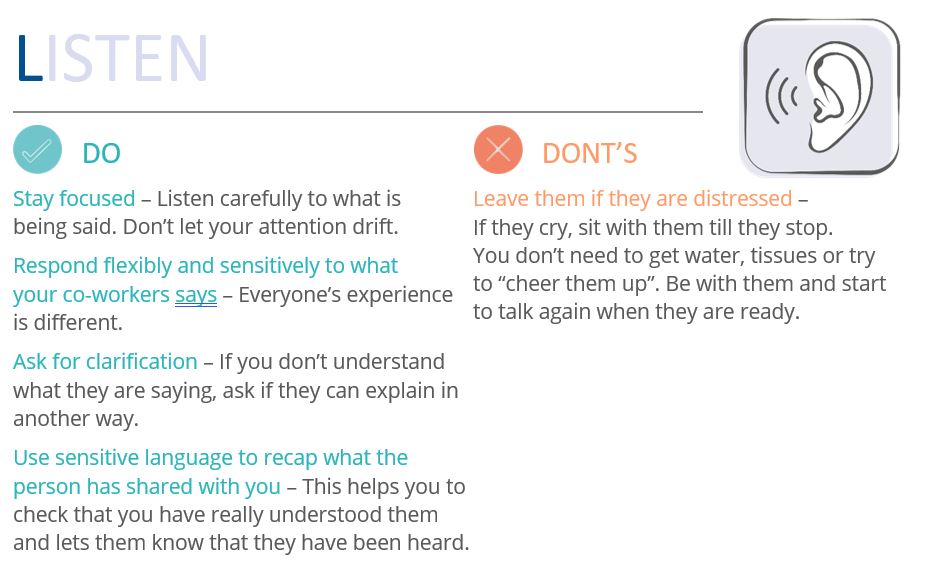
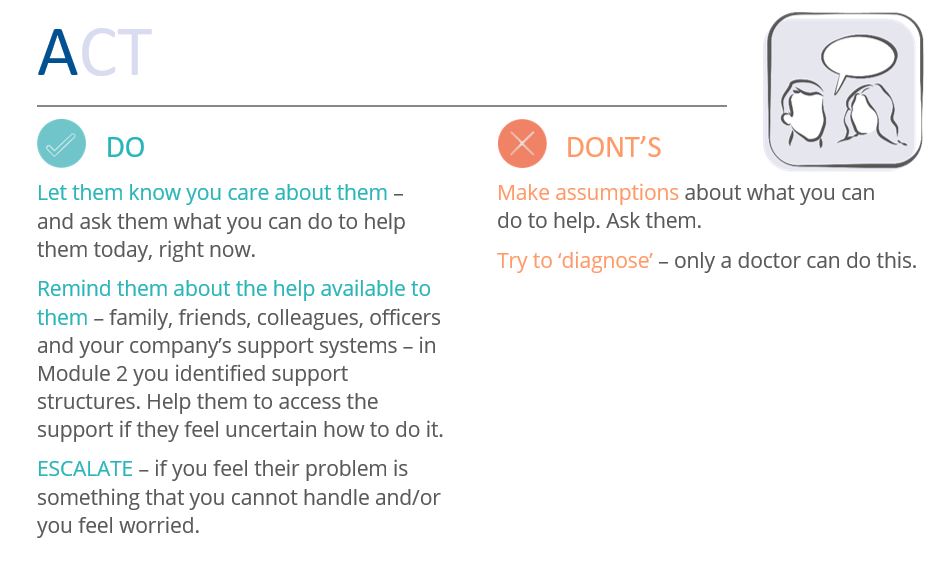
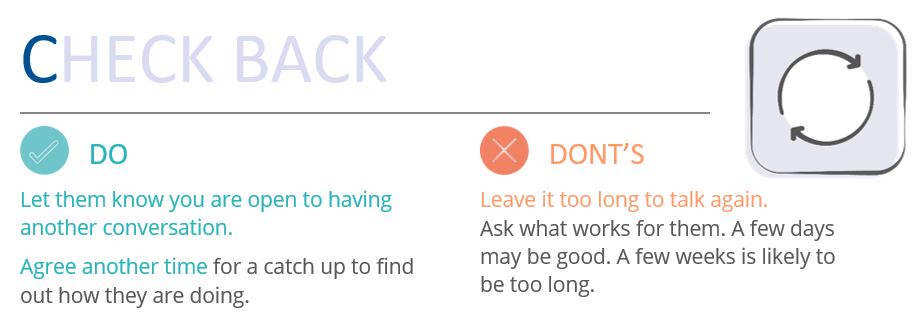
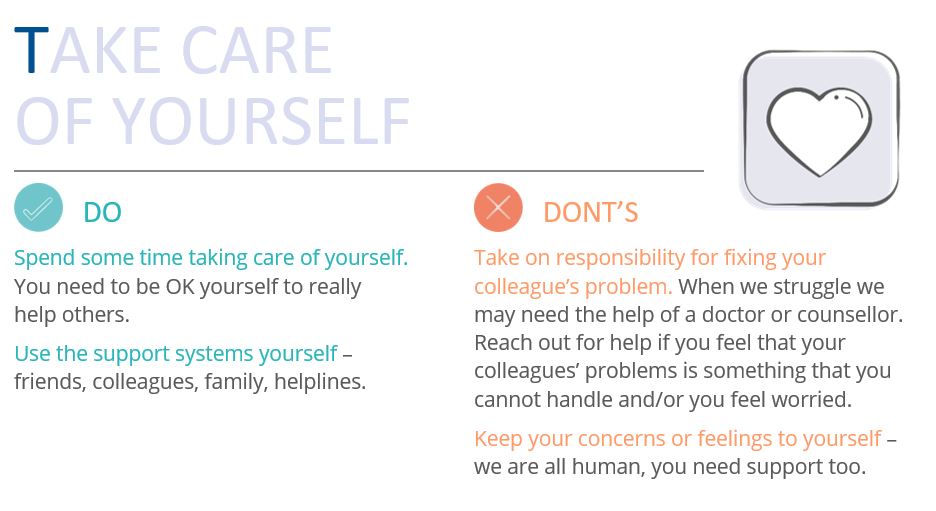
Exercise
Before starting, think about the support systems available you identified in Module 2.2;
-
Split into pairs. Pick one scenario per pair
- One of you is the crew member and will have the scenario given at the end of this module;
- The other is the person who has noticed there is a problem and is going to ask, “Are you OK?” This person does not read the scenario – they need to find out what the issue is using ALL ACT
-
Go through the ALL ACT stage
- Identify the support systems you may find useful to help this person;
- Share back with the rest of the team;
- If you have time, swap over and use a different scenario so you both have the chance to have a go at practising the ALL ACT technique.
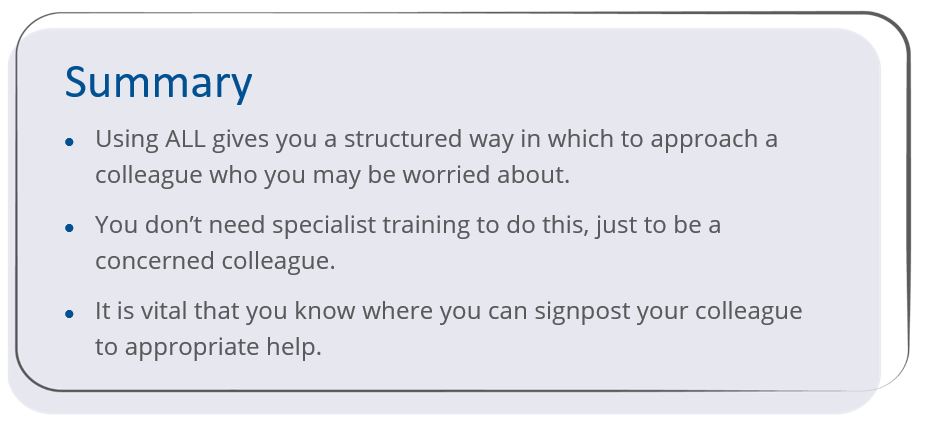
Scenarios
1. Jo – 34 years old
You are usually a very capable person but you’re trying to do all your exams to progress at the moment and you are finding some of the material very difficult.
You don’t really understand some of the technical pieces but feel foolish to ask because you’re worried about how your colleagues will perceive you.
At school and in college you were always the top of the class and so you are finding this really hard. Your confidence is being affected and you are getting quite anxious at times, which is not like you at all.
You’re not sleeping well as you are thinking about the exams and are concerned that you’re going to fail.
You’ve talked it through on the phone to your partner, but they are not being much help as they say, “You always panic and then do really well.” This time it really does feel different because you just don’t understand some of the work.
2. Mik – 28 years old
You’re a pleasant young man who is well liked on the ship.
You recently became a new father. You look tired and are not quite yourself.
You are delighted to be a father, but this has bought you a feeling of extra responsibility. You’re missing your wife and son so much and you spend time on the phone off duty catching up with them. You feel quite helpless being so far away from your wife and you don’t know what advice to give your wife about the new baby. You worry a lot and feel anxious that you are not on hand to help them.
You need help and advice and someone to discuss this with and would like to understand how others managed.
3. Dakila – 44 years old
You enjoy your job but are worried about your 14-year-old son at home.
He is not doing well at school and your wife/husband is very concerned. Your son used to be a very good pupil but over the past year he has lost interest in school and is much more interested in playing electronic games with his friends.
Your wife/husband has been trying their best to sort this out, but they have completely lost patience with him. You have two other small children (a 5-year-old girl and a 7-year-old boy), so life at home is very stressful. Every phone call home is difficult as your partner is having a hard time coping with the criticism from the wider family she is also getting.
You don’t want to talk to your colleagues as you are worried what they may think of you and you certainly don’t want to be seen as not coping by your colleagues.
You love your job and want to continue your career but feel so helpless so far away from home.
4. Milan – 46 years old
You have just returned from compassionate leave.
Your brother recently died from cancer. Although you knew it was going to happen, it was still a shock when it did.
You feel fine about coming back to work and the distraction is helping.
You are OK, but sometimes you feel sad and the grief hits you again out
of the blue.
Your family are very supportive.
5. Jamie – 27 years old
You were due off the ship this week, but your replacement has fallen ill and the office cannot tell you when you will be replaced.
You had plans arranged and you know this will mean you have to cancel and you’re not happy at all about this. It’s happened before and the office never seem to care.
